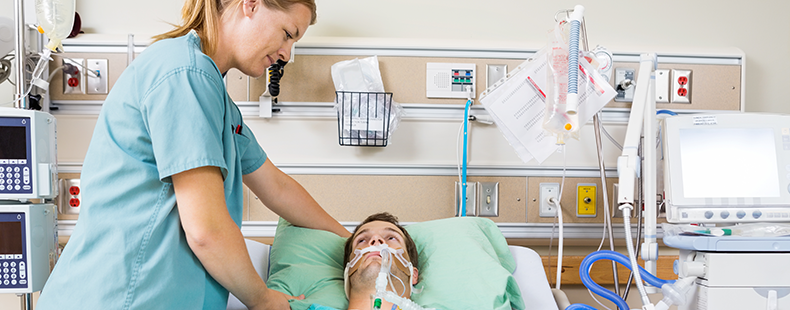How Do You Address a Nurse Practitioner? A Guide to Professional Etiquette
The Nurse Practitioner's (NP) role in today’s healthcare era is more than being a superhero in scrubs. With over 355,000 qualified and highly skilled NPs in the United States, their contributions are significant and diverse. However, the answer to the question of how to address a nurse practitioner can sometimes be confusing for those unfamiliar with the profession.
NPs hold various job titles depending on their education, training, and areas of expertise. These titles can include Family Nurse Practitioner (FNP), Pediatric Nurse Practitioner (PNP), or Psychiatric Mental Health Nurse Practitioner (PMHNP), among others. Let’s break it down and explore the different titles, their meanings, and how they reflect the specialized roles that NPs play in healthcare today.
Read More: What is a Family Nurse Practitioner?
Who is a Nurse Practitioner?
A Nurse Practitioner (NP) is an advanced practice registered nurse (APRN) with a graduate degree in nursing. They are trained to provide many services similar to those offered by doctors, with a strong focus on patient-centered care, disease prevention, and promoting healthy lifestyles.
NPs take medical histories and administer medications. However, they also diagnose illnesses, manage treatments, prescribe medications, order diagnostic tests, and counsel patients. While NPs are not physicians, they can have full practice authority in some states. Others may need a doctor's supervision to prescribe medications or make certain medical decisions.
Nurse practitioners have a different educational path than doctors and less extensive training. They work in various settings, including clinics, hospitals, emergency rooms, nursing homes, and colleges. Their expertise spans multiple specialties, such as geriatric care, mental health, orthopedics, oncology, women’s health, and acute care. Some NPs also pursue roles in cosmetic procedures, family health, and nurse management.
Read More: Scope of Practice: Nurse Practitioner vs. Registered Nurse
Nurse Practitioner Credentials & What They Signify
In order to understand how to address nurse practitioners, it is essential to their credentials. NPs may have various graduate-level credentials, and knowing the meanings of these sorts them out regarding the correct way to address them. Below is a listing of the most prevalent designations:
MSN – Master of Science in Nursing
This is an MSN, which is a graduate degree that sets nurses up for advanced practice. NPs with an MSN usually have advanced clinical preparation and are licensed to prescribe medication, diagnose conditions, and provide patient care. They are not usually referred to as "Dr." uny less thepossess a doctorate.
DNP – Doctor of Nursing Practice
The DNP is a terminal degree in nursing practice. It focuses on clinical expertise, leadership, and evidence-based care. NPs with a DNP have earned the right to use the title “Doctor” in professional settings. However, they may choose to clarify that they are not medical doctors to avoid confusion with physicians.
APRN – Advanced Practice Registered Nurse
This is a licensure category that includes multiple advanced roles, such as Nurse Practitioners, Nurse Anesthetists (CRNA), Clinical Nurse Specialists (CNS), and Nurse Midwives (CNM). All NPs are APRNs, but not all APRNs are NPs.
FNP-BC – Family Nurse Practitioner, Board Certified
This certification means that an NP has been certified through an exam in family medicine and remains board certified. Some other popular certifications include PMHNP-BC (Psychiatric-Mental Health) and AGACNP-BC (Adult-Gerontology Acute Care).
When Do Titles Change?
Whether an NP title includes "Dr." in clinical or educational settings often has to do with their highest degree:
An NP with a DNP may present themselves as Dr. [Last Name], particularly in academic or work environments.
An NP with an MSN is typically referred to as Nurse Practitioner [Last Name] or NP [Last Name].
Always default to asking the NP their preference for what they want to be called.
Importance of Addressing a Nurse Practitioner Correctly
Addressing healthcare professionals correctly shows respect and acknowledges their expertise and qualifications. Knowing how to address a nurse practitioner with advanced education and significant clinical experience is particularly important. Let's explore why:
Recognizing Their Advanced Expertise
Nurse Practitioners have studied for many years to provide advanced care. Calling them by their proper names shows their special skills, like diagnosing and treating sickness, and emphasizes their important role in providing good healthcare.
Strengthening Patient-Provider Relationships
Proper title usage shows respect and professionalism. It can aid in trust and rapport between patients and their NPs. Proper title usage enhances communication leading to a better atmosphere for discussing health issues.
Distinguishing NPs from Other Roles
Nurse Practitioners hold unique qualifications that set them apart from RNs and physicians. Addressing them correctly reduces confusion about their responsibilities and ensures patients understand the scope of care they can provide.
Cultural and Professional Respect
Most healthcare settings consider proper titles for addressing NPs. This reflects cultural sensitivity and respect for their professional positions. Calling an NP with the correct designation shows that you value these leaders and team players in providing quality care.
Educating the Public About NPs
When patients and their families learn how to address NPs correctly, they understand what NPs are qualified to do and the services they provide. This knowledge will help people make smart choices regarding care and appreciate what NPs contribute to the healthcare system.
Read More: Scope of Practice: Nurse Practitioner vs. Registered Nurse
Ways of Addressing Nurse Practitioners in Communication Modes
People often wonder, how do you address a nurse practitioner appropriately in different settings? Addressing a Nurse Practitioner (NP) correctly is about showing respect and building good communication. NPs are highly qualified professionals who play a big role in healthcare, so it’s important to use professional and thoughtful language when talking to them. Here’s a simple guide to get it right on various modes of communication:

In-Person Communication
Patients often address physicians easily as "Doctor" or "Doctor [Last Name]," but what do you call a Nurse Practitioner? Addressing a Nurse Practitioner correctly during face-to-face interactions sets the tone for mutual respect and effective communication. NPs are highly qualified, just like physicians and other healthcare professionals. Addressing NPs can be confusing due to the varied levels of qualifications. Here’s how to address an NP in person:
Use Their Professional Title
Start with "Nurse Practitioner" or "NP" followed by their last name, e.g., "Nurse Practitioner Watson" or "NP Watson." For example, during an early morning interaction, you can say, "Good morning, Nurse Practitioner or NP Smith. It’s nice to meet you."
Ask About Preferences
If the NP holds a Doctor of Nursing Practice (DNP) degree, they might prefer to be called “Dr.” followed by their last name, e.g., "Dr. Stevenson." You can politely ask, “How would you prefer I address you?”
Avoid First Names Unless Invited
You should never call an NP with their first name during the first interaction. You can use titles and last names, such as "Ms. Johnson" or "Mr. Sheldon," to maintain professionalism. Shift to first names only if the NP explicitly invites you.
Be Respectful in Tone
Avoid casual language such as "Hey" or "Dude." Instead, stick to polite and formal language. Moreover, you should always use the NP’s preferred pronouns and adapt to cultural norms. For example, some NPs may value formal titles more than others based on their background.
The best approach is to ask the NP how they prefer to be addressed. If unsure, politely inquire about their preferred form of address.
Written Communication
Writing an addressed letter to them shows respect for their qualifications and their role in the interest of patients' care. Proper written communication promotes trust and enhances patient-provider relations. The following are the key points to consider while addressing an NP in writing:
Use the Correct Title
Address NPs in writing as “Nurse Practitioner [Last Name]” or “NP [Last Name].” Writing the correct title shows respect for their role, lends authority to the one writing, and reflects adherence to professional norms.
Clarify Preferred Title
Always clarify the NPs' preference for titles. For NPs with a DNP degree, confirm if they prefer to be addressed as “Dr.” This shows respect for their choice and avoids miscommunication among the patients.
Include Their Credentials
If you know their professional designations, include them for added formality. For example, if the NP has completed different degrees and certifications, you can address them as “Janice Doe, MSN, APRN, FNP-BC.
Use a Professional Tone
Maintain a formal tone of communication filled with politeness and respect. Avoid slang or casual language. Setting a respectful tone is integral in reinforcing interaction that highlights trust and consideration for the NP's role in the healthcare sector.
Include Salutation and Closing
How do you address a Nurse Practitioner matters, especially if they prefer to be formally addressed. Use formal greetings (e.g., “Dear Nurse Practitioner [Last Name]”) and closings (e.g., “Sincerely”). Salutations enhance the respectfulness of communication and signal the importance of the NP's role.
In Email Communication
When writing to a nurse practitioner via email, it's necessary to be professional, polite, and clear. A respectful and well-crafted email can enhance collaboration and strengthen working relationships between healthcare professionals. Here’s how to approach emailing a Nurse Practitioner (NP):
Start with a Professional Greeting
Always begin with a respectful greeting, such as “Dear Nurse Practitioner [Last Name]” or “Dear Dr. [Last Name],” unless you know the NP prefers a more casual form. This sets the tone for professionalism and respect. For example, in “Dear Nurse Practitioner Martin,”.
Use Clear Subject Lines
A clear subject line helps the recipient immediately understand the email's purpose, saving time and reducing confusion. Whether it’s a request or follow-up, being specific is key. For example, “Subject: Follow-Up on Your Recommendations.”
Be Concise
Keep your email focused on the main points and avoid unnecessary details. Breaking the email into short paragraphs or using bullet points can help the NP quickly understand the context and respond efficiently. For example, “I wanted to follow up on the treatment plan you recommended.”
Maintain a Formal Tone
Avoiding casual language, slang, or emojis in professional emails is important. A formal tone keeps the conversation respectful and appropriate. For example, “I hope this email finds you well. I’d like to discuss the treatment plan you recommended.”
Close Professionally
Conclude your email with a polite and formal closing. This reinforces the professional nature of your communication. Use phrases like “Sincerely” or “Best regards” followed by your name. For example, “Thank you for your time.
Sincerely, [Your Name].”
Read More:Can A Nurse Practitioner Prescribe Medication?
Regional & Institutional Variations in Title Use
The manner in which an NP is referred to may also vary greatly depending on the state, health facility, or cultural environment. Regional and institutional variations affect whether or not an NP with a DNP is referred to as "Doctor" or merely "Nurse Practitioner."
State-Specific Laws and Guidelines
Some states have less stringent policies that favor full practice authority and wider usage of titles. Others might limit the use of "Doctor" by non-physicians in clinical environments to prevent confusion among patients.
Facility Culture and Preferences
Even in the same state, clinics and hospitals might have internal norms:
Patient Population Considerations
Some practitioners forgo the use of the "Dr." title to avoid confusion, particularly when caring for elderly or underserved populations who are not used to the difference between medical doctors and doctorally-trained NPs.
Conversely, those in leadership, education, or policy positions are more likely to adopt the "Doctor" title, particularly when not engaged in direct patient care.
Professional Courtesy & Clarity
Across any region, the safest and most courteous practice is to:
Ask the NP what they prefer to be called
Use credentials in formal or written situations
Be sensitive to local customs and patient understanding
Read More: How Long Does it Take to Become a Nurse Practitioner?
Address A Nurse Practitioner Respectfully!
Proper communication with Nurse Practitioners (NPs) builds trust and professionalism. Addressing them correctly shows respect, ensures clarity, and promotes positive relationships in healthcare settings. Using the appropriate title is essential when interacting in person, through emails, or in writing.
This approach avoids misunderstandings and honors cultural values tied to healthcare roles. It also reflects an understanding of their significant contributions to patient care. When wondering, "How do you address a Nurse Practitioner?" remember the importance of upholding professional etiquette. Those aspiring to become an NP or wanting to learn more should consider enrolling in a reputed training program.
References:
https://online.hpu.edu/blog/how-to-address-a-nurse-practitioner
https://www.forbes.com/councils/forbesbusinesscouncil/2024/03/01/understanding-the-debate-on-addressing-nurse-practitioners-as-doctor/?
https://www.bls.gov/ooh/healthcare/nurse-anesthetists-nurse-midwives-and-nurse-practitioners.htm#tab-2
https://nurse-practitioner-contract-attorney.com/how-to-address-a-nurse-practitioner/
Frequently Asked Questions
1. What is the proper way to address a nurse practitioner face-to-face?
When talking in person, the most professional title to use in addressing a nurse practitioner is their title and last name, such as "Nurse Practitioner Taylor" or "NP Taylor." If they have a Doctor of Nursing Practice (DNP), they may expect to be addressed as "Dr. Taylor." If unsure, ask politely, "How would you like to be addressed?"
2. Is it correct to refer to a nurse practitioner as "Doctor"?
Yes—if the NP possesses a Doctor of Nursing Practice (DNP), it is correct to refer to them as "Doctor," particularly in an academic or professional setting. But in clinical settings, some NPs prefer to use "Nurse Practitioner" so that patients do not get confused as thinking they are medical doctors.
3. How to refer to a nurse practitioner in a formal email or letter?
Begin with a professional greeting such as "Dear Nurse Practitioner [Last Name]" or "Dear Dr. [Last Name]" (if they have a DNP and prefer the use of this title). You can also list their complete credentials, for example, "Janet Smith, DNP, APRN, FNP-BC," for extra professionalism in formal writing.
4. Why are NP, APRN, DNP, and FNP-BC different from one another?
NP: Nurse Practitioner – a subcategory under APRN.
APRN: Advanced Practice Registered Nurse – an umbrella license that encompasses NPs.
DNP: Doctor of Nursing Practice – a terminal degree enabling some NPs to use "Dr."
FNP-BC: Family Nurse Practitioner, Board Certified – indicates specialty and board certification.
These credentials affect how you refer to a nurse practitioner, particularly whether to use "Doctor" or "NP."
5. Do regulations regarding how to address nurse practitioners differ by state?
Indeed, state laws and policies at healthcare facilities can determine the manner to refer to nurse practitioners. Whether to use "Doctor" in clinical practice is limited in some states unless explicitly defined, whereas other states permit greater use. Institutional culture and patient populations also determine these norms.
6. If you're uncertain about a nurse practitioner's preferred title, how would you address them?
If you are unsure what to call a nurse practitioner, the most professional way is to respectfully inquire, "How do you prefer to be addressed?" This is a way to avoid assumptions and be professional. Until that time, fall back on "Nurse Practitioner [Last Name]" or "NP [Last Name]," particularly in clinical or professional contexts.




































.webp)
.webp)










.webp)






